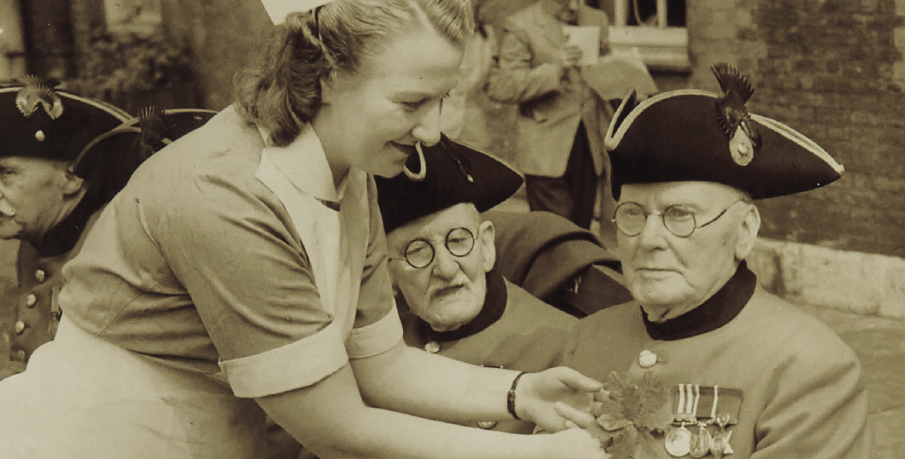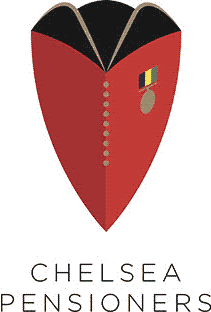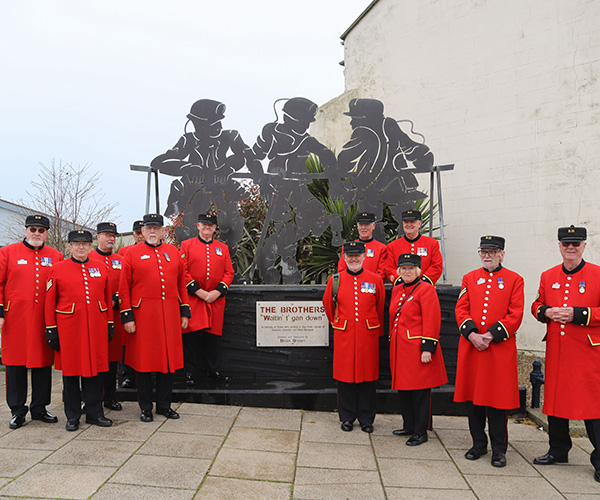Women at the Royal Hospital Chelsea: 325 Years of History
7th March 2017
The Royal Hospital Chelsea has staged an exhibition exploring the important role women have played throughout the 325 year history of the Chelsea Pensioners. Read below for the highlights:

While the admission of female Chelsea Pensioners has been a fairly recent development, women have been an ever-present and vital part of everyday life at their historic home, the Royal Hospital Chelsea, since it first opened its doors in 1692. The 'Women at the Royal Hospital Chelsea' exhibition, an initiative of the Royal Hospital's Heritage team, uncovered the experience of some of the women who have lived in, worked for, and contributed to the lives of the Chelsea Pensioners over the last three centuries.
Staged to coincide with International Women's History Month in March, attention was shifted away from the Chelsea Pensioners themselves, and from the famous faces associated with the Royal Hospital, in order to highlight previously untold stories of duty and gallentry. From the famous consort involved in the Hospital's inception, the nurses nominated for gallantry awards in World War II, to the female soldiers who would take up the Scarlet Coats for the very first time, it explored some of the roles women have taken up over the years, and revealed how much of a constant and important presence they’ve been.
The founding of the Royal Hospital
Women have played a significant part in the long history of the Royal Hospital Chelsea, almost from its earliest conception. It has long been popular folklore that aspiring actress and mistress to King Charles II, Nell Gwyn, was the source of inspiration for establishing a military hospital for invalid and veteran soldiers at Chelsea.
By other accounts it was the King’s wife, Catharine of Braganza. Her dowry included the city of Tangier, which the British Army then garrisoned for two decades. This resulted in a significant increase in the numbers of invalid soldiers on the streets.
Whatever the case might have been, the Royal Hospital Chelsea was established in 1682 and opened for business in 1692 to serve the country’s old soldiers, a role it continues to serve, in the same location today, exactly 325 years later.
Historical position of women and the Army
Until relatively recently the Armed Forces have been a predominantly male preserve, but even in its early years women would gain admittance by disguising their sex or by ‘following the drum’ - as a camp follower or Regimental wife.
Camp followers were civilians and their children who follow armies on campaign: the wives and children of soldiers, who followed their loved ones from place to place, and also those who have historically been informal army service providers, servicing the needs of encamped soldiers, selling goods or services that the military did not supply, included cooking, laundering, liquor, nursing and sexual services.
It had long been acknowledged that wives and families boosted morale and bred future soldiers. Wives in camp or on campaign could wash, sew, nurse or teach for the military community. However the number of approved marriages was low; only from the 1850s were barracks for married couples provided. The marriage rate of younger soldiers was disproportionately low compared to civilian marriage rates. When soldiers went overseas, little or no accommodation was offered to the majority of wives and children who stayed behind, who then had to rely on the parish for relief.
Women in Uniform
In the late 1600s Christian Davis (who also went by Kit Cavanagh and Mother Ross) and Hannah Snell (1723-1792) were two women who chose a more adventurous army life. Incredibly, they managed to serve in the army disguised as men! By all accounts they relished their time on campaigns, and Davis even fought a duel with her Sergeant over the affections of another woman!
Though both women fell outside the standard criteria for admission to Chelsea as Pensioners, they were awarded pensions for their service and were eventually laid to rest in the Hospital burial ground. It would take two centuries more before they were to be followed in full by their latter day counterparts as female Chelsea Pensioners. In the intervening years, women have tended to the needs of the Chelsea Pensioners in numerous important ways. Using artefacts from the Royal Hospital collections and archives, this exhibition will illustrate the various roles in which they did so in both official and unofficial capacities.
Women on the Hospital Staff
On 24th June 1692 the initial staffing of the Hospital was set out in writing, and Anna Acton was appointed as Housekeeper along with twenty four Matrons: each were widows of former soldiers, and as such their jobs were secure.
Other positions for women would be added over time such as the Whitster who ran the laundry and the Lamp Woman in 1746. In the late 20th century women’s roles were expanded beyond care and cleaning to all forms of Royal Hospital management.
Other Women of the Hospital
Though the Royal Hospital was a largely male environment for much of its history, there were always women on site working in the households of the senior staff members. Some of the female non-staff residents were making contributions to society beyond the walls of the Royal Hospital: the diarist Fanny Burney, and science writer and polymath Mary Somerville, who became the first female member of the Royal Astronomical Society. Similarly Florence Nightingale provided work references to a veteran who had served with her in the Crimea. When he became a Chelsea Pensioner he donated her bible to the Hospital.
Additionally Queen Victoria not only authorised the establishment through Letters Patent, but was insistent on visiting the Royal Hospital to bid farewell to her old soldier and Prime Minister Wellington when he was laid in state here in 1852.
Today at the Royal Hospital, women are represented across every area of the organisation, accounting for about 40% of the senior management positions as well as key caring roles of Nurses, Housekeepers and Stewards.



